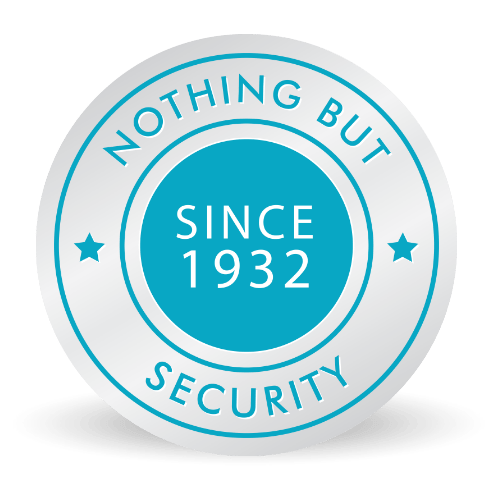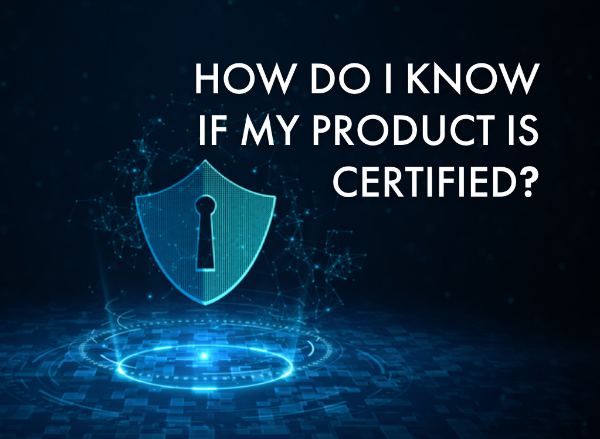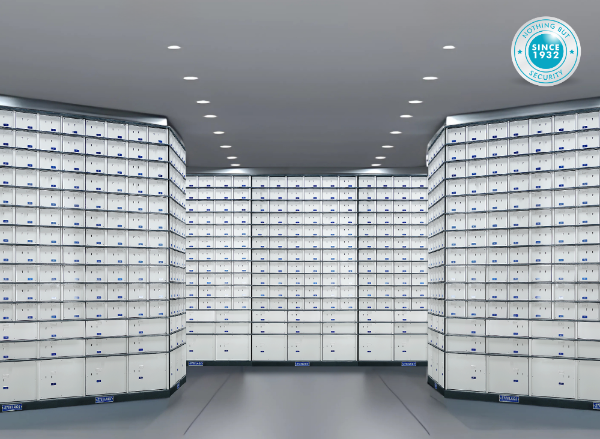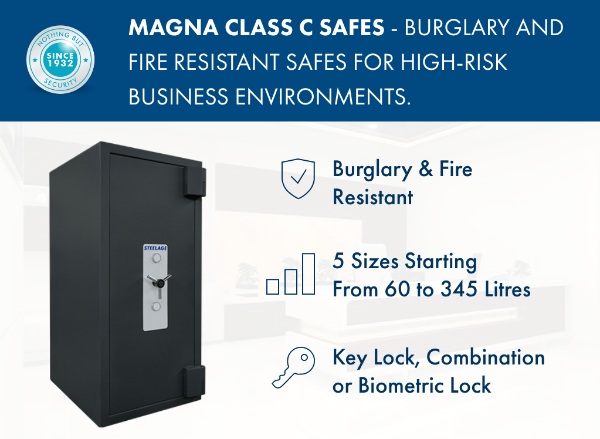
STEELAGE BLOGS
Sat 13th July 2024
Certified Safes vs. Non-Certified Safes - Which one to choose?

When it comes to safeguarding your valuables, choosing the right safe is crucial. Understanding the differences between certified and non-certified safes can help you make an informed decision that protects what matters most to you.
What are Certified Safes?
Certified safes meet stringent industry standards for protecting valuable items such as jewelry, documents, or cash. These safes undergo rigorous testing and evaluation by independent organizations to ensure they can withstand threats like burglary, fire, or environmental damage.
Reasons to Choose a Certified Safe:
- High-Security Standards: Certified safes are tested to meet specific security standards set by regulatory bodies, ensuring robust protection against unauthorized access.
- Reliability: They offer resistance against threats like fire and burglary due to their strong construction and advanced design features.
- Insurance Coverage: Many insurance policies require certified safes to provide coverage for valuable items, offering peace of mind in case of loss or damage.
What are Non-Certified Safes?
Non-certified safes lack official certification from recognized testing laboratories. These safes vary widely in quality and reliability, posing potential risks such as inadequate fire or burglary protection.
Reasons to Avoid Non-Certified Safes:
- Lower Security Assurance: Non-certified safes may not provide the same level of protection against advanced threats as certified safes, potentially compromising the safety of your valuables.
- Insurance Limitations: Some insurance policies may exclude coverage for valuables stored in non-certified safes, leaving you vulnerable in the event of theft or damage.
Steelage Certified Safes: Ensuring Uncompromised Security
At Steelage, we take pride in offering a comprehensive range of certified safes designed to meet diverse security needs:
- Magna Class C Safe: Robust security with Class C certification, ideal for protecting cash and documents in residential or commercial settings.
- Magna Class BB Safe: Enhanced security with Class BB certification, perfect for safeguarding high-value items such as jewelry and important documents.
- Hallmark Safe: Strong security features with burglary-resistant design and certification, suitable for jewelry, cash, and documents.
- Safe with Deposit Lockers: Industry-leading strength and quality, tailored for high-risk business environments like banks.
- FBR Safe: High-security protection with Class C certification, ensuring valuables are safe from fire and burglary risks.
Why Choose Steelage?
Steelage safes not only meet rigorous certification standards but also incorporate advanced security features to safeguard your valuables effectively. Our commitment to quality is backed by accreditation from institutes like BIS (Bureau of Indian Standards), ensuring each product meets stringent criteria for reliability and performance.
Whether you're securing personal valuables at home or protecting assets in a commercial setting, Steelage provides trusted solutions that prioritize security and peace of mind.
Frequently Asked Questions (FAQs)
1. Are certified safes worth the investment?
Certified safes are definitely worth the investment due to their rigorous testing and compliance with industry standards. They provide reliable resistance against threats like burglary and fire, which is crucial for safeguarding valuable assets.
2. What certification standards do Steelage safes meet?
Steelage safes are certified by reputable organizations such as BIS (Bureau of Indian Standards). These certifications ensure that our safes meet stringent security and quality benchmarks.
3. Do certified safes affect insurance coverage?
Many insurance policies require the use of certified safes to cover valuable items such as jewelry, cash, and important documents. Using a certified safe can often lower insurance premiums and provide comprehensive coverage against theft or damage.
4. How often should certified safes be serviced or maintained?
Regular maintenance includes checking locking mechanisms, inspecting fireproof materials, and verifying security features to uphold their effectiveness.


